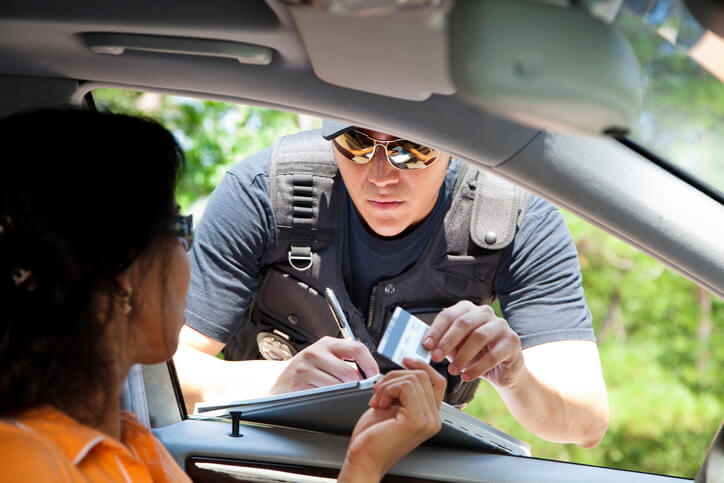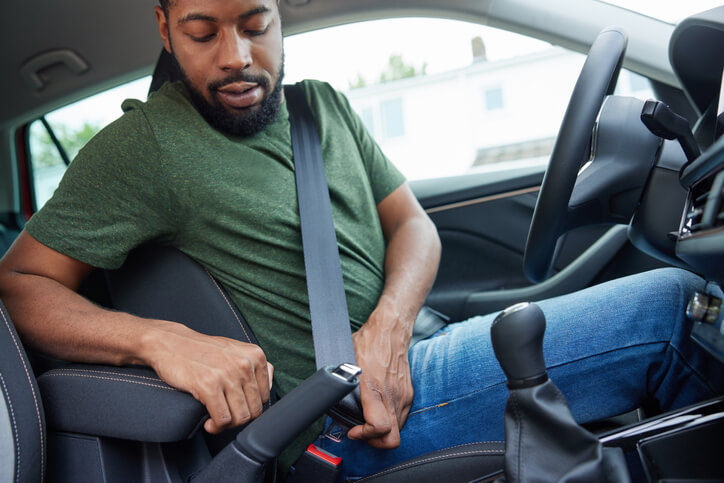No one enjoys receiving a traffic ticket, but understanding the consequences and how to navigate the process can save you time, money, and a headache. In this comprehensive guide, we will explore everything related to Washington traffic tickets, from the types of violations and penalties to how to contest, defer, or even have your ticket dismissed. Buckle up and let’s get started!
Key Takeaways
- Understanding Washington Traffic Tickets is essential to avoid unnecessary stress and costs.
- Consequences can include fines, impacts on driving record, increased insurance premiums and potential license suspension or revocation.
- To address traffic tickets promptly it is important to understand the available options such as paying a fine online/in person, requesting for mitigation hearing or contested hearing in court. Hiring an attorney may provide various benefits.
Washington Traffic Ticket Overview

In Washington, traffic tickets can be broadly categorized into moving violations, non-moving violations, and red-light camera tickets. Each type of violation carries its unique set of consequences, ranging from fines and penalties to impacts on your driving record.
While the complexities of traffic infractions can be quite daunting, a proper understanding of how to respond can mitigate stress and unnecessary costs.
Moving Violations
Moving violations are infractions committed while your vehicle is in motion. Common examples include speeding, failure to have liability insurance, and seat belt violations. These violations can have considerable consequences, such as increased insurance premiums, license suspension or revocation, and other penalties.
Adhering to traffic regulations, keeping your vehicle well-maintained, and staying updated on changes to traffic laws are key factors in avoiding moving violations. Unattended moving violations can accumulate points on your driving record, potentially leading to the suspension of your driving privileges.
Taking moving violations seriously and responding appropriately is vital in mitigating potential impacts on your life and finances.
Non-Moving Violations
Non-moving violations, on the other hand, occur when your vehicle is not in motion or involve defective equipment or incomplete documentation. Examples include:
- illegal parking
- entering a state park after hours
- littering
- failure to license a pet
Unlike moving violations, non-moving violations are not reported to the Department of Licensing or insurance companies, and some infractions are specifically ordered not to be reported. As a result, non-moving violations typically have less severe consequences, and many drivers choose not to dispute them.
Addressing non-moving violations remains important in order to avoid fines and penalties. Ensuring your vehicle is in proper working order, keeping your paperwork up-to-date, and being mindful of parking regulations can help you avoid non-moving violations and the associated fines.
Red Light Camera Tickets
Red light camera tickets are a unique type of non-moving violation issued with the assistance of a red light camera. These tickets generally carry a higher fine than other non-moving violations. However, red light camera tickets do not appear on your driving record or impact your insurance premiums in Washington.
Should you be faced with a red light camera ticket, consider submitting a Ticket Review Request for legal review.
Consequences of Traffic Infractions

Traffic infractions in Washington have varied consequences, including:
- Fines and penalties
- Impacts on your driving record
- Increases in insurance premiums
- Possible license suspension or revocation
When dealing with a traffic ticket, understanding your options becomes crucial, especially as contesting the ticket is the only possible way to keep it off your driving record.
Successfully contesting a ticket may result in reduced or eliminated fines and help maintain your driving record, which can lead to lower insurance premiums.
Impact of Driving Record
Traffic tickets in Washington have a lasting impact on your driving record. They remain on your record for a period of five years, which can lead to:
- Increased insurance premiums
- Points on your license
- Driver’s license suspension or revocation
- Higher fines for future violations
It’s important to drive safely and follow all traffic laws to avoid these consequences.
Promptly addressing traffic tickets, including speeding tickets, and taking appropriate actions are crucial steps in mitigating impacts on your driving record.
Insurance Premiums
Traffic tickets can lead to a significant increase in insurance premiums in Washington. Here are some key points to consider.
- A single traffic ticket can cause car insurance costs to rise by up to 82%.
- The increase in insurance premiums can persist for three to five years, depending on the insurance carrier.
- Multiple tickets can result in even higher increases in insurance rates.
Avoiding future tickets and accidents is fundamental to maintaining lower insurance premiums.
License Suspension or Revocation
License suspension or revocation is a potential consequence of multiple traffic infractions in Washington. Major traffic violations, such as:
- Reckless driving
- DUI
- Driving with a suspended license
- Vehicular homicide
- Eluding a police officer
Engaging in certain activities can result in the suspension or revocation of your driver’s license and driving privileges.
Your license cannot be used for driving until all the necessary conditions are met. It will typically be suspended or revoked in this scenario. Addressing traffic infractions and keeping a clean driving record are vital to avoid potential license suspension or revocation.
Responding to a Washington Traffic Ticket

When faced with a Washington traffic ticket, you have several options for responding, including paying the fine, requesting a mitigation hearing, or requesting a contested hearing. It is important to weigh the pros and cons of each option and choose the best course of action based on your specific circumstances.
With a 15-day window from the date of the infraction to respond to a traffic ticket, it’s vital to act quickly and make well-informed decisions.
Paying the Fine Online or In Person
Paying the fine associated with your traffic ticket can be done online or in person in Washington. If you choose to pay online, visit the website of the respective county’s court or the Washington State Department of Licensing, which accepts online payments through credit or debit cards.
Alternatively, you can visit the court in person to pay your fine. Keep in mind that paying the fine is an admission of guilt, and the infraction will be reported to the Department of Licensing and may impact your driving record and insurance premiums.
Requesting a Mitigation Hearing
Requesting a mitigation hearing allows you to admit guilt but explain your situation in court, potentially resulting in a reduced fine. This option can be beneficial for those who have a valid reason for their traffic infraction or are facing financial hardship.
However, the ticket will still remain on your driving record, which can impact your insurance premiums. It is important to weigh the potential benefits of a mitigation hearing against the consequences on your driving record.
Requesting a Contested Hearing
A contested hearing is an opportunity to fight your traffic ticket in court and require the prosecutor to prove their case. If you believe you were not responsible for the traffic violation or the ticket was issued in error, a contested hearing may be the best option for you.
You will have the chance to present your evidence, cross-examine witnesses, and have an attorney represent you. If successful, your traffic ticket will be dismissed or reduced, potentially saving you from fines and impacts on your driving record.
Defending Yourself Against Traffic Tickets
Though defending yourself against traffic tickets may seem daunting, proper preparation and understanding of your rights can enhance your chances of a favorable outcome. Collecting evidence, preparing your case, and knowing your rights are all essential steps in building a strong defense against traffic tickets.
This section delves into these steps, offering tips for effective self-defense in court.
Evidence Collection
Collecting evidence is a crucial step in building your defense against a traffic ticket. This may include:
- Photographs
- Videos
- Testimonies from witnesses
- Other pertinent documents that can corroborate your case.
Be thorough in gathering any evidence that supports your claim and may help convince the judge of your innocence. The more evidence you have, the stronger your defense will be.
Preparing Your Case
Preparing your case involves:
- Reviewing the evidence you have gathered
- Crafting your arguments accordingly
- Researching the relevant laws and any pertinent court rulings that may apply to your case.
Consider any potential weaknesses in your case and be prepared to address them. Organization and preparation are key to presenting a strong defense in court.
Knowing Your Rights
Understanding your rights when dealing with traffic tickets is essential. You have the right to present evidence, cross-examine witnesses, and have an attorney represent you.
Familiarize yourself with the legal process and the rights afforded to you, as this knowledge can empower you to make informed decisions and present a strong defense in court on your court date.
Traffic Ticket Deferral in Washington

In some cases, you may be eligible for traffic ticket deferral in Washington. This option allows you to remove the ticket from your driving record, provided that certain criteria are met.
Understanding eligibility requirements and conditions for deferral can help you determine if this option is right for your situation and can save you from the long-term consequences of a traffic ticket on your driving record.
Eligibility for Deferral
Eligibility for traffic ticket deferral in Washington varies by county and generally requires having a valid driver’s license with no prior or pending traffic violations. If eligible, you may request a deferral once every seven years.
If granted, the ticket will not be reflected on your driving record, provided you do not commit any new traffic offenses during the deferral period.
Conditions and Consequences
If granted a deferral, you must adhere to the conditions set by the court, which may include paying an administrative fee. Should you commit a new traffic infraction during the deferral period, the court will revoke the deferral, and the ticket will be reported as a conviction to the Department of Licensing.
Understanding the conditions and consequences of deferral can help you make the best decision for your specific situation.
Hiring a Traffic Attorney in Washington
Hiring a traffic ticket attorney in Washington can provide numerous advantages, such as:
- Avoiding points on your driving record
- Mitigating penalties
- Ensuring your rights are protected
- Navigating the legal process
- Providing counsel on how to manage your case most effectively.
This section outlines the advantages of hiring an attorney and provides guidance on selecting the right one for your case.
Benefits of Hiring an Attorney

Engaging a traffic ticket attorney in Washington can provide several advantages, such as:
- Expertise in traffic regulations
- Mitigated penalties
- Time and convenience
- Safeguarding of your rights
- Assurance
An attorney can help you understand the legal process, formulate a defense strategy, and present your case in court, potentially leading to the dismissal or reduction of your ticket.
Finding the Right Attorney
To find the right traffic ticket attorney in Washington, consider their experience, success rate, and reputation. Research their credentials and ask for referrals from friends or family who have had positive experiences with traffic ticket attorneys. Make sure the attorney is knowledgeable about the laws of your state and the court where your ticket will be issued.
Taking the time to find the right attorney can greatly improve your chances of a successful outcome in your traffic ticket case.
Common Traffic Violations and Fines in Washington
In Washington, common traffic violations include speeding, seat belt violations, and illegal parking. Understanding the fines and penalties associated with these violations can help you avoid costly mistakes and stay in compliance with traffic laws.
This section outlines the specific fines and repercussions associated with these common traffic violations in Washington.
Speeding Fines
Speeding fines in Washington vary depending on the speed and location of the infraction. Generally, fines range from $101 to $250.
Speeding in a school zone can result in even higher fines, emphasizing the importance of obeying posted speed limits to ensure the safety of all road users and avoid costly penalties.
Seat Belt Violations

Seat belt violations in Washington carry a penalty of $124. Ensuring that all passengers in your vehicle wear seat belts not only helps protect their safety in the event of an accident, but also helps you avoid traffic tickets and fines.
It is important to make sure that everyone in your vehicle is wearing their seat belt at all times.
Illegal Parking Fines
Illegal parking fines in Washington vary depending on the specific violation, with fines generally ranging from $30 to $250. Being mindful of parking regulations and ensuring your vehicle is parked legally can help you avoid these fines and the inconvenience of dealing with parking tickets.
Parking regulations are in place to ensure the safety of drivers and pedestrians, and to keep parking regulations in place.
How to Avoid Traffic Tickets in Washington
Avoiding traffic tickets in Washington requires vigilance and adherence to traffic laws, maintaining your vehicle, and staying informed about changes in traffic regulations.
By adhering to these guidelines and maintaining situational awareness, your risk of receiving traffic tickets and incurring related fines and penalties can be minimized.
Obeying Traffic Laws
Adhering to traffic regulations is essential for the safety of all motorists and passengers on the road, in addition to avoiding expensive citations and other sanctions.
Be mindful of speed limits, right-of-way rules, and other associated directives to ensure you are in compliance with Washington’s traffic laws.
Vehicle Maintenance
Proper vehicle maintenance is crucial in preventing non-moving violations. Regularly inspect your tires, brakes, and other components to ensure they are functioning optimally, and follow the manufacturer’s prescribed maintenance schedule.
Keeping your vehicle in good working order can help you avoid traffic tickets and potential fines.
Staying Informed
Staying informed about traffic laws and regulations is essential to avoid infractions and the associated consequences. Consult the Washington State Patrol website or subscribe to their email list to stay up to date on any changes to traffic laws in Washington.
Being knowledgeable about the traffic laws in your state can help you avoid costly mistakes and stay in compliance with the rules of the road.
In Conclusion
In conclusion, understanding Washington traffic tickets and their associated penalties and consequences is crucial for any driver. By knowing your options for responding to a ticket, properly defending yourself, and staying informed about traffic laws and regulations, you can minimize the impact of traffic tickets on your life and finances. Stay vigilant, maintain your vehicle, and always drive safely to avoid costly mistakes and ensure the safety of all road users.
Frequently Asked Questions
How do I find out if I have a ticket in Washington?
To find out if you have an unpaid traffic ticket in Washington, contact the Washington State Department of Licensing’s Customer Service by calling (360) 902-3900.
How do I pay a traffic ticket in Washington?
You can pay your Washington traffic ticket online, over the phone at (844) 399-5259, or by mail with a check or money order payable to District Court and including the infraction number.
A $25 return check fee will apply if your payment is not honored.
What happens if you don’t pay a traffic ticket in Washington State?
If you don’t pay a traffic ticket in Washington State, your right to a hearing will be lost and the court may send your ticket to a collection agency.
Additionally, your driver’s license or vehicle registration may be suspended, depending on the infraction.
How long does a ticket stay on your record in Washington State?
In Washington State, tickets stay on your record for five years, after which they will drop off and no longer be visible.
This may not completely clear your record, but it could help reduce the number of points on there.
What are some common moving violations in Washington?
Common moving violations in Washington include speeding, failure to have liability insurance, and seat belt violations.

 Live Chat
Live Chat










